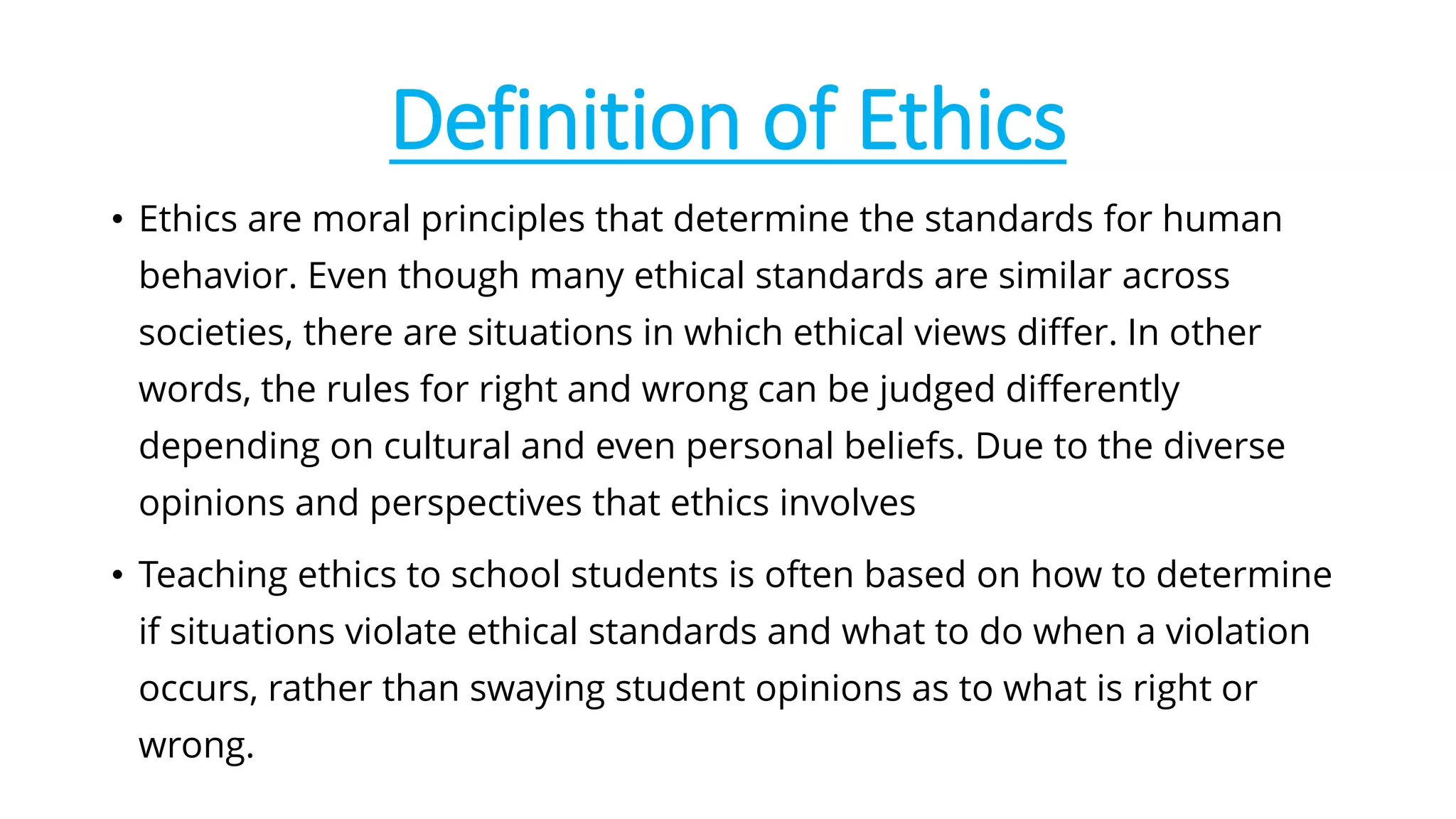This document discusses the importance of teaching ethics to students. It begins by defining ethics and explaining that ethics involve determining moral standards for behavior. While ethical views can differ depending on culture and beliefs, teaching ethics to students focuses on evaluating ethical standards and responding to violations. Studying ethics allows students to critically think about different opinions and perspectives in a safe environment before making real-world decisions. It then outlines different types of ethics, including metaethics (the nature of morality), normative ethics (theories of right and wrong behavior), and applied ethics (analysis of specific moral issues). The document emphasizes that teaching ethics is important as it exposes students to new viewpoints, develops critical thinking skills, and prepares them for success after graduation by















































